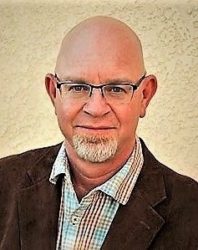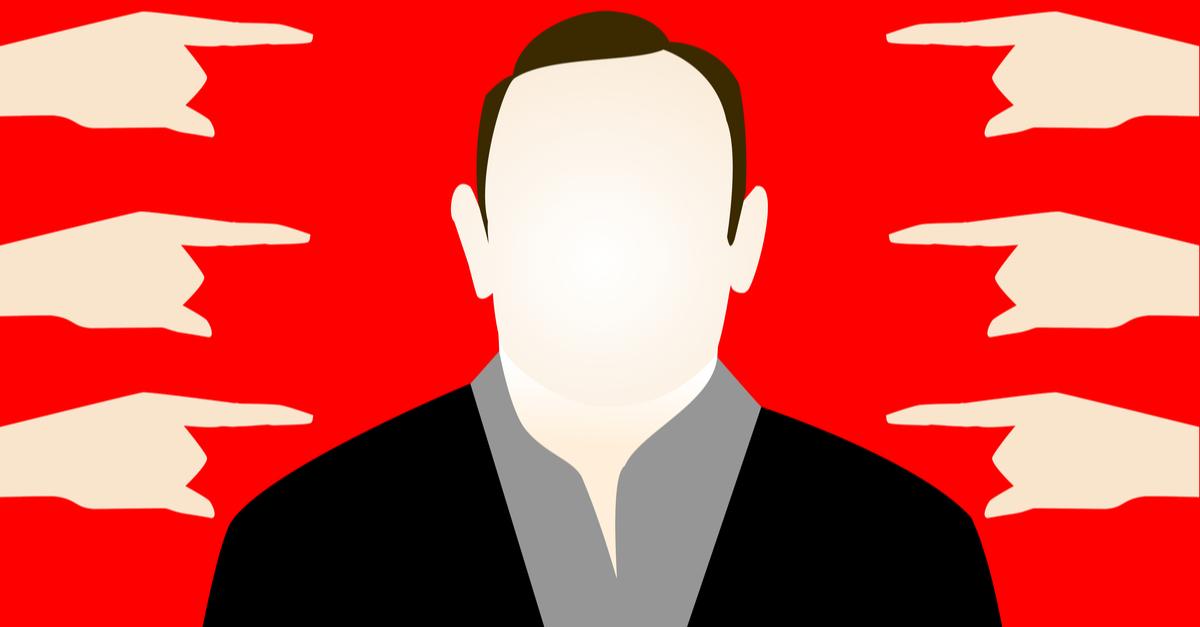 Scott Brassart
Scott Brassart
I didn’t come into substance and sex addiction recovery so I could heal or change my behaviors. I came into recovery because I thought that someone might tell who I should blame for all of the problems in my life. I just plain did not see that I had a part in the disaster my life had become.
I’ve now been in recovery for more than 20 years, and the longer I’ve been around, the more I’ve come to understand that my inability (unwillingness) to accept blame for my addiction and the consequences I was facing is relatively common among newly recovering addicts. In fact, blaming others is a significant part of most addicts’ denial. Instead of accepting that we may have a serious issue, we ignore complaints and attempted interventions and accuse others of nagging, being prudish, trying to stifle us, failing to understand us, and asking too much of us. We seem to think that the mess our lives have become is somehow, in some way, someone else’s fault.
I blamed my parents. Then I blamed society. And religion. And the internet. I blamed any person or institution that either directly or indirectly impacted my life, telling myself they were the cause of my addictive behaviors and therefore my problems.
I pointed the finger at absolutely everyone but the person who was staring back at me in the mirror. Sure, I knew that if someone else was behaving the way I was behaving, that person would obviously have a problem that he or she needed to deal with. But not me. I was different because…. And then I would fill in the blank with any idea that popped into my head, no matter how crazy.
I justified my addiction with stories like:
- My mother was too close to me and that messed me up.
- I was probably molested (even though I had no memory of that).
- My parents never accepted me for who I am.
- Our society is sexually repressed. In Europe, they’re much freer about sex.
- Everyone I know drinks and gets high. So that can’t be my problem.
My list of rationalizations was very, very long, and nothing on that list ever had anything at all to do with me making a conscious choice to behave in a certain way. Even when my consequences spiraled out of control and I finally entered therapy and 12-step recovery, I still did not see that my choices were mine. In fact, I spent much of my first year of sobriety blaming others (especially my parents) for my problems.
Finally, one day in a 12-step meeting, at a time when I felt that I had mellowed a bit about my parents’ role in creating my addiction, I generously said, “I suppose my mom and dad would have been really good parents for a different kid, but they didn’t get me or support me.” And I truly felt that statement was a generous and kind interpretation of my childhood. Then an old-timer sitting next to me snorted and said, “You’re probably not what they had in mind, either.” Everyone in the room laughed (except for me) because it was a really funny comment. And then, after the meeting, the old-timer pulled me aside to say, “I meant what I said, you know.”
That was the moment I began to look at myself as maybe having some responsibility for my addiction and my life.
No, I did not immediately figure out that all of the consequences I was walking through at that time were entirely and completely my fault. I just wasn’t quite ready to shift blame from everyone else onto myself. But I did slowly begin to understand and accept that although my addiction may have started as a coping mechanism for dealing with childhood trauma, nobody ever held a gun to my head and said, “Engage in your addiction or else.” I also came to understand and accept that even after I knew that my addictive behaviors were out of control and creating significant problems in my life, I chose to continue with those behaviors. So when my life fell apart, it was nobody’s fault but my own.
Today I am grateful for that old-timer’s comment. It was a much-needed spark for changing how I think about my addiction and my life (and my family). I’m also happy to say that after many conversations with that old-timer (now a close friend and trusted advisor), along with a considerable amount of therapy, working the 12 steps (especially Step 4), and sitting in on literally thousands of recovery meetings, I understand that my addiction is my own. There may be issues that underlie my addiction that are not of my doing, but the choice to engage in addictive behaviors can only be made by me.
* * * * * * * * * *
If you or someone you care about is struggling with sex, porn, or substance/sex addiction, help is available. Seeking Integrity offers inpatient treatment for sex, porn, and substance/sex addicts, as well as low-cost online workgroups. At the same time, SexandRelationshipHealing.com offers a variety of free webinars and drop-in discussion groups, podcasts, and more.
